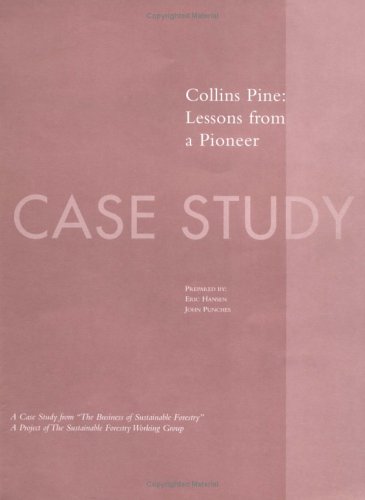Born during the cut and run days of early twentieth century America, Weyerhaeuser defied conventional industry logic by holding onto timberlands after they were cut rather than walking away. By the late 1930s, the company was faced with a decision: What to do with previously logged land on which natural regeneration had been ineffective. It decided to regenerate forests and grow timber as a crop, first by seeding harvested areas (1940s) and later by planting seedlings (1950s to present). Beginning in the 1960s, Weyerhaeuser began producing seedlings in nurseries and integrated replanting into its plantation operations. Following this strategy, Weyerhaeuser, headquartered in Federal Way, Washington, has become the world's largest private owner of standing softwood timber, North America's largest producer of softwood lumber, and the world's largest supplier of softwood pulp.Weyerhaeuser initiated sustained yield forestry to provide a guaranteed and consistent supply of wood, not out of direct concern for the environment. However, the company has come to realize that by investing in a long-term strategy, their decisions have positive ecological and economic consequences that will amplify into the future. Over the past thirty years, Weyerhaeuser has developed a form of sustainable forestry based upon high-yield plantations that are among the most productive in the world. This high-yield model provides higher returns while simultaneously minimizing overall environmental impacts by producing high-quality wood and fiber on substantially fewer, continuously regenerated, acres. In this sense, the Weyerhaeuser Forestry model may facilitate both environmental and economic sustainability.
- ISBN13 9781559636216
- Publish Date 1 June 1999
- Publish Status Out of Stock
- Publish Country US
- Imprint Island Press
- Format Paperback
- Pages 16
- Language English
